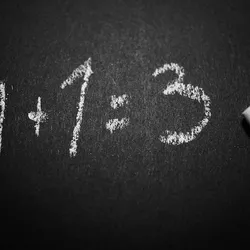
Level 1:
Hunter Biden went to court. He did something wrong with taxes. Taxes are money people pay to the government. He didn’t pay all his taxes. That’s bad. He also had a gun. But he wasn’t allowed to have it. The law said he couldn’t. Now he says he’s sorry. He told the judge he was guilty. That means he admits to doing wrong things. He might have to go to prison. Prison is where people go when they break the law. He could stay there for some time. People are talking about this. They want to know if he got special treatment because of his family. They also want to know if he will change and become better. The judge will decide his punishment later. Some people think he should get less punishment. Others think everyone should be treated the same. We will have to wait and see what happens.
Level 2:
Hunter Biden appeared in court because of tax issues. Taxes are money people pay to the government. He didn’t pay all the taxes he owed, which is wrong. He also had a gun when he wasn’t allowed to. He admitted his guilt in court. This means he confessed to doing wrong things. He might have to go to prison as punishment. People are talking about this case. They want to know if he got special treatment because of his family. They also want to know if he will change and become better. The judge will decide his punishment later. Some people think he should get less punishment. Others think everyone should be treated the same. We will have to wait and see what happens.
Full Story:
Hunter Biden, the son of President Biden, appeared in a Delaware federal court on Wednesday morning to enter a plea in a years-long investigation into his tax affairs. The 53-year-old has agreed to plead guilty to two misdemeanor counts of willful failure to pay federal income tax.
The charges against Hunter Biden were announced last month by the U.S. Attorney for the District of Delaware, David C. Weiss’ office. They revealed that despite owing over $100,000 in federal income taxes each year, he failed to pay his taxes for both years in question. In addition to the tax charges, he faced another count related to possessing a firearm while being an unlawful user of and addicted to a controlled substance.
If convicted on the tax charges, Hunter Biden could face a maximum of 12 months in prison for each count, adding up to a total of two years behind bars. On the firearm charge, he agreed to participate in a pretrial diversion program, which aims to divert certain offenders away from the traditional criminal justice system and into alternative programs focused on rehabilitation and treatment.
The specifics of the tax investigation and the reasons behind Hunter Biden’s failure to pay his taxes have raised questions and concerns among the public. The investigation spans over several years, prompting people to wonder why it took so long to address the issue. Moreover, the significant amount of unpaid taxes raises eyebrows about the fairness of the tax system and whether it allows certain individuals to evade their obligations without consequences.
As the son of the President of the United States, Hunter Biden’s case has also drawn attention to issues of privilege and accountability. Did his family’s political position play any role in the handling of the investigation? Were there any special considerations or leniencies granted due to his status? These questions linger in the minds of many, demanding transparency and accountability from the authorities involved.
The guilty plea itself raises questions about the impact of this decision on Hunter Biden’s life and the broader implications for the Biden family and the President’s reputation. Pleading guilty to tax charges can have severe consequences, affecting employment opportunities, financial standing, and personal relationships. How will this plea impact the Biden family and their public image moving forward?
Furthermore, the firearm charge adds another layer of complexity to the case. Possessing a firearm while being an unlawful user of a controlled substance is a serious offense, with a potential penalty of up to ten years in prison. However, the pretrial diversion program offers an alternative path, focused on addressing underlying issues such as addiction or mental health problems. This approach raises discussions about the effectiveness of such programs and whether they genuinely help individuals reform and reintegrate into society.
Some may argue that the plea and potential leniency in sentencing highlight disparities in the criminal justice system. Are diversion programs equally accessible to all individuals facing similar charges, or do they disproportionately benefit those with privilege and resources? Addressing these questions is crucial in ensuring a fair and equitable justice system for all Americans.
This case involving Hunter Biden has also brought attention to the broader issue of tax compliance among high-income individuals. Many taxpayers, especially the wealthy, exploit loopholes and tax havens to reduce their tax liabilities significantly. The situation raises questions about the adequacy of tax regulations and enforcement, calling for a closer examination of the tax system’s **integrity **and fairness.
As the case unfolds, it’s essential for the public to stay informed about the proceedings and the outcomes. Transparency and openness in legal matters are crucial for maintaining trust in the justice system and ensuring that justice is served.
In conclusion, Hunter Biden’s guilty plea to tax charges has significant implications for him and his family, as well as broader questions about the criminal justice system and tax compliance. The case sparks discussions about privilege, accountability, fairness, and the effectiveness of diversion programs. It serves as a reminder that no one, regardless of their social or political status, should be above the law. As the legal process continues, it is crucial for the public to seek transparency and honesty to maintain faith in the justice system.
Questions:
Question: What charges did Hunter Biden plead guilty to in court?
Answer: Hunter Biden pleaded guilty to two misdemeanor counts of willful failure to pay federal income tax.
Question: How long could Hunter Biden potentially face in prison if convicted on the tax charges?
Answer: If convicted on the tax charges, Hunter Biden could face a maximum of two years in prison (12 months for each count).
Question: Do you think the pretrial diversion program is an effective approach for addressing firearm possession charges?
Answer: The effectiveness of the pretrial diversion program for addressing firearm possession charges can be debated, as it focuses on rehabilitation and treatment instead of traditional criminal justice processing.
Question: Why are people questioning the fairness of the tax system in light of Hunter Biden’s case?
Answer: People are questioning the fairness of the tax system because despite owing a substantial amount in taxes, Hunter Biden did not face immediate consequences until a years-long investigation took place.
Question: What is the main concern raised regarding Hunter Biden’s case and his family’s political position?
Answer: The main concern raised is whether Hunter Biden’s family’s political position played any role in handling the investigation, and if there were any special considerations or leniencies granted due to his status as the son of the President of the United States.
Fill in the Blanks:
firearm, transparency, accountability, adequacy, disparities, willful, Transparency, leniency, loopholes, misdemeanor, penalty, District, rehabilitation
The 53-year-old has agreed to plead guilty to two ________ counts of ________ failure to pay federal income tax.
Attorney for the ________ of Delaware, David C.
In addition to the tax charges, he faced another count related to possessing a ________ while being an unlawful user of and addicted to a controlled substance.
On the firearm charge, he agreed to participate in a pretrial diversion program, which aims to divert certain offenders away from the traditional criminal justice system and into alternative programs focused on ________ and treatment.
As the son of the President of the United States, Hunter Biden’s case has also drawn attention to issues of privilege and ________.
These questions linger in the minds of many, demanding ________ and accountability from the authorities involved.
Possessing a firearm while being an unlawful user of a controlled substance is a serious offense, with a potential ________ of up to ten years in prison.
Some may argue that the plea and potential ________ in sentencing highlight ________ in the criminal justice system.
Many taxpayers, especially the wealthy, exploit ________ and tax havens to reduce their tax liabilities significantly.
The situation raises questions about the ________ of tax regulations and enforcement, calling for a closer examination of the tax system’s **integrity **and fairness.
________ and openness in legal matters are crucial for maintaining trust in the justice system and ensuring that justice is served.
Vocabulary:
Tax affairs: Financial matters related to paying taxes.
Misdemeanor: A minor criminal offense, less serious than a felony.
Willful: Intentional or deliberate.
Federal income tax: Taxes imposed by the federal government on individuals’ income.
Firearm: A weapon, such as a gun, that uses gunpowder to propel a projectile.
Unlawful user: Someone who illegally consumes or uses controlled substances.
Controlled substance: A drug or chemical whose use and distribution are regulated by law.
Guilty plea: An admission of guilt in a criminal case.
District: A geographical area designated for legal or administrative purposes.
Penalty: A punishment or consequence for breaking the law or rules.
Pretrial diversion program: An alternative system of supervision and treatment for certain offenders before trial.
Rehabilitation: The process of helping individuals recover or reform from a condition or behavior.
Transparency: The quality of being open, clear, and honest.
Accountability: The responsibility for one’s actions and decisions.
Leniency: Showing mercy or being more forgiving in judgment or punishment.
Disparities: Differences or inequalities in treatment or opportunities.
Loopholes: Legal gaps or weaknesses that allow individuals to avoid certain obligations or restrictions.
Tax havens: Countries or jurisdictions with favorable tax laws used by individuals and corporations to reduce tax liabilities.
Adequacy: Sufficiency or appropriateness for a particular purpose.
Integrity: The quality of being honest and having strong moral principles.




